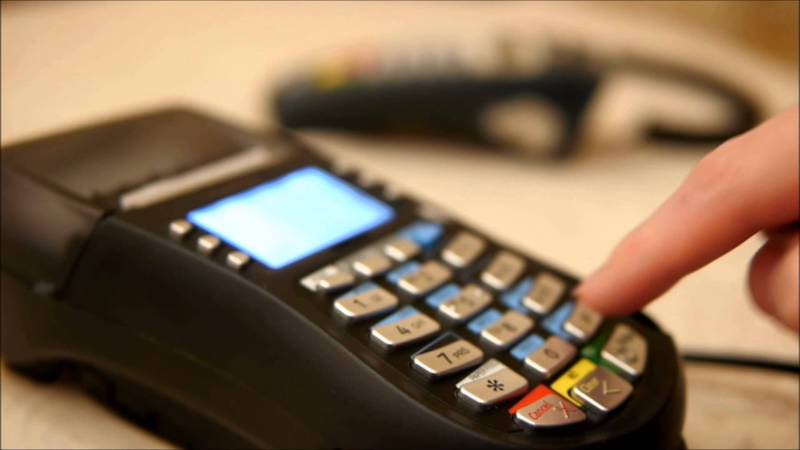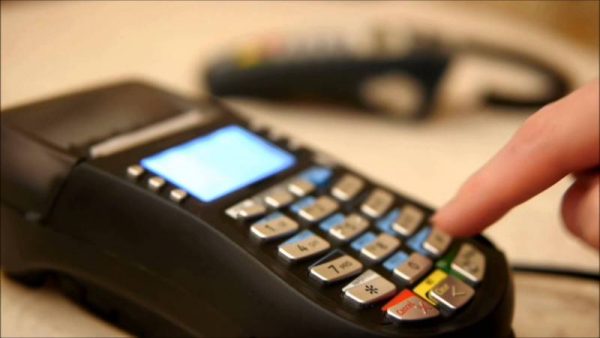In 2012, the Central Bank of Nigeria introduced its Cashless Policy. It aimed to reduce the volume of cash in circulation, and encourage a general switch to electronic payment systems. Other stated purposes included granting the informal economy greater access to credit, increased tax collections, and making monetary transactions more traceable (thus deterring corruption).
Read more about FinTech
Ten years after its initial introduction, we’re taking a look at the policy, and asking: has it achieved its ultimate aim—the reduction of our dependence on cash for everyday uses?
The Policy In Detail
The cashless policy sought to nudge Nigerians in its intended direction (cashless transactions) by imposing a fee on daily cash withdrawals. Individuals whose withdrawals exceeded the ₦500,000 were to pay 3% of what they took out, while corporates would pay 5% of withdrawals of more than ₦3 million.
Implementation began in Lagos, lasting between January and March of 2012. A second stage of the rollout began in 2013, involving Lagos, Rivers, Abia, Anambra, Kano, and Ogun States, as well as the FCT. It was extended to other states of the Federation in 2014. It suspended the policy in 30 states in 2017.
In 2019, the CBN rekindled this drive by announcing a 2% charge on daily deposits of more than ₦500,000 for individuals, and a 3% fee on daily deposits exceeding ₦3 million from businesses. This policy was to be introduced in the same states that served as pilot territories for the cashless policy in 2013.
It’s hard to tell how broadly these measures have been carried out. But, given the relevant data, we can judge the policy’s effectiveness. So we turn to the data.
Digital Payments Have Played A Significant Role
Two data sets worth examining here are the numbers for electronic transactions and the circulation of cash.
The growth of the former looks impressive. The Nigeria Interbank Settlement System (NIBSS) reports that the volume and value of Electronic Fund Transfers have increased significantly over the past ten years.
The volume of Electronic Fund Transfers (EFT) climbed 77% in 2020 (compared to 2019), reaching a high of2.03 billion transactions. Also, the value of EFTs in naira grew by 50% to ₦158 trillion in the same year. This was despite the COVID-19 pandemic which checked growth in Q2 (second quarter).
Growth has occurred across every major channel: POS, internet banking, USSD, mobile apps, etc. For instance, the volume of POS transactions rose from 63.7 million in 2016, to 655.7 million in 2020. The total value of those transactions has also trended upwards.
Sign up to the Connect Nigeria daily newsletter
In Q3 2020, 569 million online transactions were recorded, 90% more than the 299 million online transactions in Q3 of 2019. The NIBSS tells us that people have also spent more on each transaction, perhaps indicating a growing trust in these alternative payment systems.
Cash Is Still King
If the cashless policy aimed to make cash second fiddle to electronic payments, it hasn’t achieved that just yet.
A look at the supply and velocity of hard currency over the past few years confirms this. It has surged over the past couple of years, going from ₦2.2 trillion in early 2020 to ₦2.8 trillion in 2021—a 27% change. In January 2017, it was just about ₦2 trillion.
Considering the velocity of money (how many times money ‘changes hand’), it’s safe to say that cash still dwarfs electronic payments by several factors. A research paper from economists at Covenant University (dating from 2018) suggests that electronic banking tools have not had a significant impact on cash in circulation.
It’s not hard to see why. Although supermarkets and upscale stores have adopted POS and other digital payment systems, the vast majority of financial transactions in Nigeria still involve the exchange of physical cash.
In summary, we’ve made real progress with electronic payments. But there’s a lot of ground left to cover.
Can FinTech Help To Create A Cashless Economy?
Thus far, the narrative around digital transactions has focused on Fintechs and their role in ushering more Nigerians into the formal financial system. We wrote about this in our article, Are FinTechs Really Reaching the Unbanked?
Online and mobile app transfers are among the leading electronic transaction channels in Nigeria, as the CBN’s industry e-payment figures indicate. They are run by banks and FinTech companies. In the coming years, we should see even greater adoption of these, as the predominantly young users of these technologies mature.
A few policy tweaks were put forth in the research paper we referenced earlier. Perhaps the most interesting of them was the suggestion that the CBN should reduce or eliminate charges on transactions across electronic channels. This could draw more people toward them.
In the end, it will take the concerted effort of the CBN, banks, and FinTechs to achieve the long-sought birth of a cashless economy and the retreat of tangible currency.
Featured Image Source: This Day Live
Got a suggestion? Contact us: [email protected]


